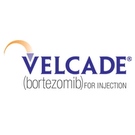Velcade Plus Dexamethasone Produces Robust, Yet Short-Lived, Response In Myeloma Patients

The European Journal of Haematology has announced that researchers have found a Velcade (bortezomib) and dexamethasone (Decadron) combination is highly effective in relapsed and refractory multiple myeloma patients. The study authors caution, however, that the treatment responses appear relatively short-lived.
In the present study, 70 relapsed or refractory myeloma patients–that is, patients whose disease has not responded to previous therapies–received either Velcade alone or a Velcade-dexamethasone combination. The treatments were not equally divided, however, and 87 percent of the patients received the combination therapy.
During treatment, 59 percent of patients achieved at least a partial response to therapy, including seven percent who achieved complete response and 36 percent who achieved a very good partial response. Ninety-five percent of the responding patients achieved their best response within the fourth cycle of Velcade therapy.
The median duration of positive response for all patients was 6.1 months. Patients who had achieved complete response or very good partial response, however, enjoyed significantly longer periods without their myeloma progressing (a median of 7.3 months versus 3.8 months for non-responding patients).
The most frequent reason for reducing or discontinuing Velcade therapy was peripheral neuropathy, which is a form of nerve damage in the extremities that can cause pain and tingling sensations. Fifty-five percent of patients experienced this side effect during treatment, and 24 percent of patients altered their therapy because of it. After Velcade dose reduction or cessation, the peripheral neuropathy resolved in 71 percent of patients.
Despite the high response rates that Velcade-dexamethasone generated, especially in a patient population that had failed to respond adequately to other therapies, these responses proved short-lived. At a median of 10.8 months follow-up, the myeloma had progressed in 83 percent of patients, and 70 percent were no longer alive.
The researchers could not fully explain why the duration of response was so short in this study – significantly shorter, in fact, than two other studies to evaluate Velcade in relapsed and refractory patients. They hypothesize that the patients in this study may have harbored more aggressive, treatment-resistant forms of myeloma, thereby skewing trial results, because many patients had already tried many other therapies unsuccessfully.
In addition, high rates of Velcade therapy discontinuation or dose reduction due to peripheral neuropathy – one of every four patients – likely decreased treatment effectiveness.
Going forward, the study authors hope to find “a different schedule and/or new combination with chemotherapy or new agents in order to reduce [Velcade]-related side-effects which can jeopardize the accomplishment of the planned program and consequently to belittle its efficacy.”
For more information, see the full article in the European Journal of Haematology (abstract available for free; article available for a fee).
Related Articles:
- None Found
